
The interim results of a single-arm trial in children with autosomal recessive deafness 9 (DFNB9) show the benefits of binaural administration of gene therapy: better hearing with no serious adverse effects.

The interim results of a single-arm trial in children with autosomal recessive deafness 9 (DFNB9) show the benefits of binaural administration of gene therapy: better hearing with no serious adverse effects.

An adeno-associated virus (AAV) gene therapy for hereditary spastic paraplegia type 50 (SPG50)—funded by a young patient’s family—gives hope not only to a 4-year-old, but to researchers working on similar projects for other rare diseases.

The 5 agents in ViPOR—including venetoclax and lenalidomide—worked better together in a phase 1b/2 trial than they previously have, individually, in treating patients with certain diffuse large B-cell lymphoma (DLBCL) subtypes.

A 43-year-old woman had 2 myasthenic crises within 3 months, with both taking place shortly after exposure to hair dye containing methylisothiazolinone (MIT).

Results of a recent database analysis reveal that patients with juvenile myasthenia gravis—particularly prepubescent girls—might benefit from early thymectomy to cut production of autoreactive AChR B cells. Usually, though, it’s not done.

In the realm of lymphoma and chronic lymphocytic leukemia (CLL), and of the treatments that address them, a global survey of nearly 7000 patients proves there’s a long way to go to eliminate cancer-related fatigue from their lives.

Determining the roles that various inflammatory markers and pathways play in lower-risk myelodysplastic syndromes (MDS) could lead to therapies that keep disease progression at bay.
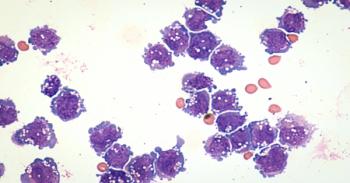
With its recent approvals around the world to treat newly diagnosed and relapsed/refractory diffuse large B-cell lymphoma (DLBCL), the antibody-drug conjugate polatuzumab vedotin is changing regimens for current and future patients, with manageable adverse effects.

Building on prior research, a team tackled mouse-model colon cancer with a novel nonviral nanovector to carry dual–messenger RNA (mRNA) immunogene therapy.

Synthesizing 11 qualitative studies, authors present a nuanced picture of how patients with type 1 diabetes (T1D), and the health care professionals (HCPs) who treat them, feel about using social media platforms as a self-management tool—and where improvements can be made.
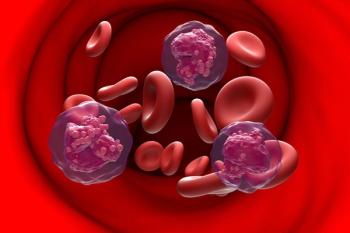
Phase 1 trial results indicate that combining inotuzumab ozogamicin with dose-adjusted EPOCH chemotherapy could offer a safe, well-tolerated, and effective treatment option for patients with relapsed or refractory CD22+ B-cell acute lymphoblastic leukemia or lymphoma (R/R B-ALL).

When patients are treated in primary care for high blood pressure, sociodemographic factors sway the rates at which they access patient portals, investigators found. This could influence their hypertension outcomes.

Further acknowledgement and study of the tumor microenvironment in diffuse large B-cell lymphoma (DLBCL) could eventually result in much more personalized—and effective—treatments.
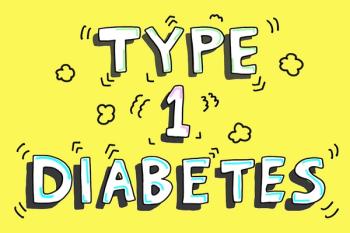
In the course of investigating the use of Bacillus Calmette-Guérin for high-risk individuals who have type 1 diabetes (T1D), researchers hoped—and found—that BCG could substantially reduce the chance of those with T1D contracting COVID-19; BCG has historically been used to prevent tuberculosis (TB).

Interim results of the randomized, phase 3 PhALLCON trial indicate ponatinib’s benefit over imatinib in frontline treatment of Philadelphia chromosome–positive acute lymphoblastic leukemia (Ph+ ALL), but questions linger about ponatinib’s long-term safety.

A 77-year-old man had no risk factors for hepatocellular carcinoma (HCC), but he was nonetheless found to have it. Along the way, he was also diagnosed with previously undetected chronic lymphocytic leukemia/small lymphocytic lymphoma (CLL/SLL).

The results of T1International’s 2022 Out-of-Pocket Expenses survey highlight many huge inequities in the US and around the world relating to insulin and diabetes care supplies.
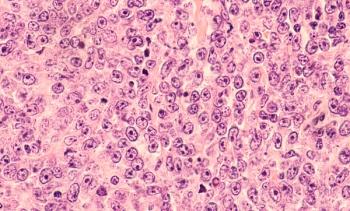
A very unusual case of lip-based diffuse large B-cell lymphoma (DLBCL) was treated successfully thanks to prompt diagnosis and chemotherapy treatments.

Closer monitoring of youth hypertension could lessen the disease in adults, reducing overall costs and morbidity related to cardiovascular disease (CVD), new research shows.

The case of a 77-year-old woman with a long chronic lymphocytic leukemia (CLL) history illustrates the novel use of zanubrutinib as a potential option for some patients who have failed first-generation Bruton tyrosine kinase (BTK) inhibitors and venetoclax.

Investigators of a retrospective study encourage colleagues to utilize molecular testing for patients with an established diagnosis of lower-risk myelodysplastic syndromes (MDS), to be sure they don’t miss out on treatments, like luspatercept, for which they qualify.

A very unusual case of 2 chronic leukemias, chronic lymphocytic leukemia (CLL) and secondary chronic myeloid leukemia (CML) existing simultaneously in an older patient was treated with a pair of targeted kinase inhibitors.

More than 20 years of gene therapy clinical research have led to etranacogene dezaparvovec’s use in hemophilia B, according to authors of a recent review—and it takes its place in a line of current and potentially many future genomic medicines for a range of diseases.

Although histological transformation to diffuse large B-cell lymphoma (DLBCL) remains a common complication of follicular lymphoma, patient survival has increased significantly since the introduction of rituximab about 2 decades ago.

JAMA used a case report of rhino-orbital-cerebral mucormycosis in a patient with uncontrolled diabetes to demonstrate correct and incorrect treatment choices.
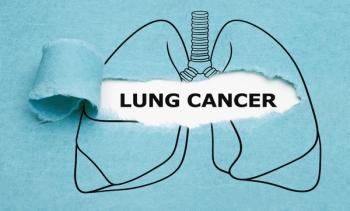
For patients with early-stage non–small cell lung cancer (NSCLC), combining neoadjuvant immune checkpoint inhibitors and platinum-based chemotherapy improves 2-year outcomes over chemotherapy alone, suggest findings of an extensive literature review and meta-analysis.

EVIdeNCE study data, from real-world practice, confirm the efficacy and safety that ibrutinib previously demonstrated in clinical trials involving patients with CLL, according to the study authors.

A new study is among the largest real-world analyses to date to assess trends over time and predictive factors for older patients with acute myeloid leukemia (AML) who received allogeneic hematopoietic cell transplantation (allo-HCT).

259 Prospect Plains Rd, Bldg H
Cranbury, NJ 08512
© 2025 MJH Life Sciences®
All rights reserved.
